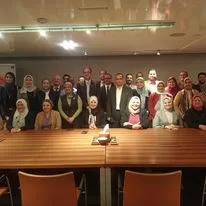By Ibrahim Mohamed
The training workshop on food control, phytosanitation, which concluded on 29 February, focused on evaluation criteria.
The project entails the application implementing concessional
The FAO/WHO Food Control System Assessment Tool overseen by ten African Union member states, more specifically in the Common Market for Eastern and Southern Africa (COMESA) region. Egypt is one of those countries.
This project aims to provide technical support for the operationalisation of Africa’sanitary and phytosanitary policy framework, enabling rational planning to strengthen national food control systems based on a rigorous evidence-based assessment of internationally recognised good practices in the design and management of national food control systems.
The evaluation tool included a number of standards for all operations related to Egypt’s food control system, such as the process of formulating relevant policies and laws, institutional framework, infrastructure, routine domestic control work, export and food import controls, monitoring of foodborne diseases, evidence and risk assessment rules, and the importance of continuously improving the control system.
In addition to agreeing with the focal points on the next steps to be taken, the timing of data submission, the task of verifying their validity, and the challenges encountered.
The workshop’s activities included training 40 focal points for relevant competent authorities on the evaluation process and informing national stakeholders of the purpose.
This event comes due to the efforts of the National Food Safety Authority (NFSA) to improve and develop Egypt’s food safety system.






Discussion about this post